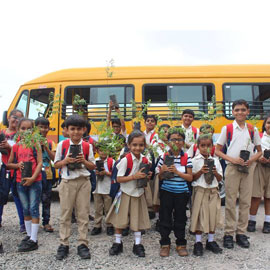



It is rightly said by Sandra Day O’Connor, “We pay a price when we deprive children of the exposure to the values, principles, and education they need to make them good citizens”
Contrary to popular belief, the words literacy, knowledge and education are not synonyms in anyway. Literacy is being able to read or write. Knowledge is acquiring information and education is the knowledge of implying all this information in the real-world scenarios. Maya Angelou once said, “When you know better, you do better.” Therefore, in order to hone a child to be a responsible citizen, it is extremely imperative to strike a balance between these knowing and doing.
What does it mean to be a responsible citizen?
A citizen is foremost considered responsible when he knows to give back to the community and society, he lives in by respecting its laws, order and regulations. A person’s responsibility does not just stop at the society as a whole but also respecting people living in it an following his duties like voting, respecting other people’s freedoms and fundamental rights.
Here are a few aspects in which children can be exposed to the idea and implications of being a good responsible citizen –
1. Explaining to them the importance of responsibility as a citizen –
Disobeying leads to disorder and disorder leads to chaos in the society. It is very important to teach children in gentle words that being responsible, obeying rules and sticking to laws is imperative for a smooth functioning society and for the world to be a peaceful place to live in.
2. Education about fundamental rights and duties –
No matter how young they are, it is crucial to teach children what fundamental rights are, what their duties are and how to respect their own as well as other’s rights.
3. Role modelling –
Children learn from example. You can- not just tell them certain things and go against those things yourself. Having good examples to look up to, being around responsible educators, parents, elders and leading by example goes a very long way over bookish just bookish knowledge.
4. Teaching them morality and values –
No matter how powerful somebody’s brain is, all knowledge goes to waste if the heart is unclean. It is of utmost importance to teach the children moralities and values like respect, compassion for other humans, patience and perseverance. These concepts are the ones which help convert the knowledge into education and are pillars of good citizenship.
With the young minds being so impressionable and pertaining to the fact that the kind of evils in the world they are exposed to through the media or even real life, it takes a lot of directed effort to teach kids the right values and make them responsible citizens.